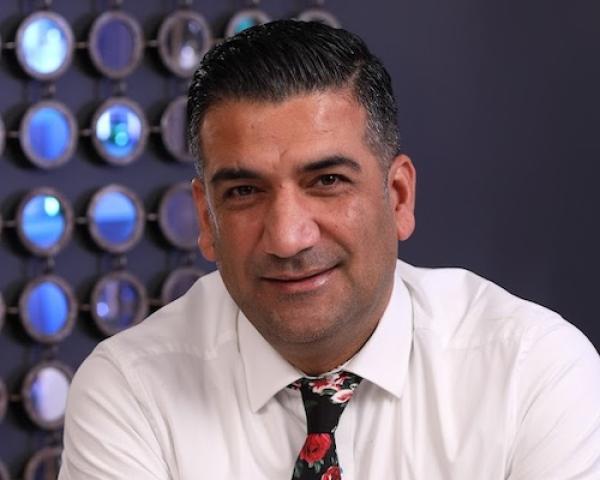As a wholesale insurance provider, our mission is to mitigate risk for our transportation clients and provide the best service possible, and this includes paying timely claims where warranted. Where warranted is the important qualifier. There is nothing more distressing in insurance than facing a nuclear verdict where the facts are on the side of the insurer but the sentiment is not.
Recently, we had this experience. In the case at issue, public sentiment was not favorable to us as an insurer, but the claims adjusters believed in their files, knew their facts and were confident they could win. And they did, helping to deliver a unanimous full defense verdict against a plaintiff in North Carolina who was seeking $10 million in bad faith.
The pressure to settle lawsuits at all costs is building, and trial attorneys know it. Nuclear verdicts, those higher than $10 million, increased by 116% in the past year, according to Marathon Strategies' 2024 report. Carriers representing industries like commercial trucking, which had the third-highest number of nuclear verdicts in 2024 (carrying a $790 million total price tag), feel the squeeze more than others.
As nuclear verdicts become more commonplace, the insurance industry will need to adapt. While it is important for insurers to settle when necessary, there are times when going to trial is your best move. Sometimes the confidence you demonstrate in taking a case to trial can help bring about a more reasonable settlement than if proposing a settlement was your first step. If a plaintiff's attorney does not see a pre-existing pattern of settlements, they are less likely to push for more costly payments.
Unpacking the fear factor
Many carriers settle because they feel like the deck is stacked against them in court, and for good reason. Today's juries are sharper and more informed than ever. The belief that jurors don't grasp the financial stakes of an insurance case no longer holds water. Juries understand that insurance companies with deep pockets stand behind large trucking companies in court, and they are willing to make them pay.
The commercial trucking industry also suffers from negative public perception, spurred by poor over-the-road driving habits and a spate of recently proposed restrictive trucking legislation. Prosecutors are eager to play into the frustration of any plaintiff or juror who has ever been stuck following a slow-moving tractor-trailer on the interstate.
Then there's the very term "nuclear verdict," which trial attorneys use to scare off insurance companies. While the risk for a high-dollar verdict is always possible, there's a difference between what's right, what's wrong and what's unreasonable. And nuclear verdicts are almost always unreasonable.
Why settle-at-all-costs doesn't work
Nobody wants to go to trial. Not the defense counsel. Not the carrier. And sometimes, not even the client. Yet while a settle-at-all-costs mindset may prevent a nuclear verdict, it is not a wise long-term solution.
Like close-knit family members, plaintiffs' attorneys talk with one another regularly. They know a carrier's risk tolerance well, sometimes even better than the carrier itself. If they perceive you will always settle to avoid a costly verdict, they will use that to their advantage in negotiation, potentially costing your organization large sums of money.
Even worse, carriers with a settle-first mentality inevitably submit offers too quickly, without having all the facts. This happens because of a disconnect among carriers, adjusters and defense attorneys. A talented adjuster is worth their weight in gold, but when carriers don't get their staff involved in pending litigation until the trial deadline approaches, they don't give adjusters time to do their job properly. As a result, carriers settle, only to find a key piece of evidence later that would have exonerated their client. The key is to loop in a claims adjuster as soon as a claim is filed so they can use these strategies early on and avoid missing key pieces of evidence.
Finding the right balance
Instead of settling everything, carriers should weigh each case on its merits and choose which ones to pursue. Claims that carry large policy limits and inherently higher reputational risks, like those involving fatalities, should be settled quickly. Juries tend to react emotionally to these cases, increasing the odds of a nuclear verdict.
Other cases require more discernment. To make the best decision, carriers should investigate claims as quickly as possible and trust their adjusters' opinions. You should pursue litigation, build your case on facts and not hypotheticals, and commit to knowing your case better than the plaintiff.
Preparing to win
A well-defended case will protect your organization from financial loss and strengthen your reputation as a carrier that won't fold under pressure. These five strategies can help you gain confidence, even in the face of a potential nuclear verdict.
- Partner with the right legal team. Seek lawyers who will stand by you and focus solely on the claim, without getting caught up in petty details or behind-the-scenes politics. If a firm isn't the right fit, don't be afraid to make a change. In our recent win in North Carolina, there was the potential for a nuclear verdict. Prior counsel wanted us to settle, but we knew we had a strong case. We brought in a firm that helped us score a unanimous jury verdict in our favor.
- Trust your attorneys. Once you find the right firm, give them the confidence to succeed. Don't expect them to win at all costs. Trust their judgment, give them the latitude to be aggressive and strong, and maintain open, honest communication throughout the litigation process.
- Stay connected with your insured. Don't go to court if your client doesn't believe in the fight. A client with wavering beliefs can derail the defense, and the jury will be able to read their lack of conviction. Ensure your client is on board and prepared to support the case from deposition all the way through verdict.
- Be brutally honest in court. Nuclear verdicts happen most often when jurors perceive lawyers or carriers aren't genuine. Juries are smart. Show respect by being honest and admitting when you're wrong. We recently did this in a case where we knew our client was at fault. Instead of arguing about fault, we apologized, admitted the error, then presented the facts about why we should pay less than what was being asked. Our honesty paid off. We achieved a $116,000 verdict in a case where the plaintiff asked for $1.6 million from the jury on medicals that were valued at $250,000.
- Accept the results. Going to trial is always a risk. There will be both wins and losses. But if your organization establishes a track record of winning often, you will offset the losses and set yourself up for future success.
Don't be a pushover
Settling may feel like the safest route, but giving in too easily can hurt your organization's reputation and its bottom line. Carriers that choose their battles wisely, trust their adjusters and choose the right attorneys won't be pressured into quick payouts or fear-driven decisions. With the right preparation and mindset, you can go to trial confidently and win.






